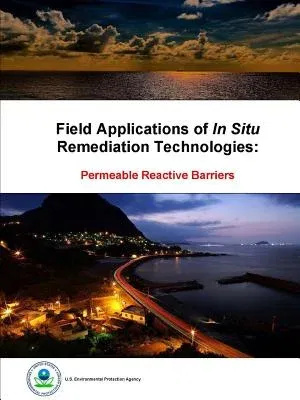U S Environmental Protection Agency
(Author)Field Applications of In Situ Remediation Technologies: Permeable Reactive BarriersPaperback, 14 January 2016

Qty
1
Turbo
Ships in 2 - 3 days
In Stock
Free Delivery
Cash on Delivery
15 Days
Free Returns
Secure Checkout
Print Length
124 pages
Language
English
Publisher
Lulu.com
Date Published
14 Jan 2016
ISBN-10
1329831373
ISBN-13
9781329831377
Description
Product Details
Book Format:
Paperback
Country of Origin:
US
Date Published:
14 January 2016
Dimensions:
27.94 x
21.59 x
0.66 cm
ISBN-10:
1329831373
ISBN-13:
9781329831377
Language:
English
Pages:
124
Publisher:
Weight:
303.91 gm

